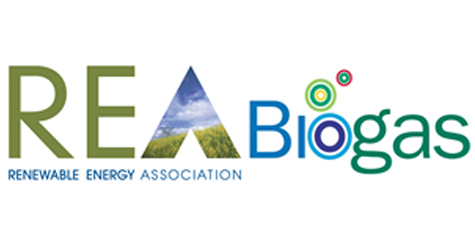Proposals to subject compost and digestate from anaerobic digestion to unnecessarily expensive and burdensome testing (known as the ‘End-of-Waste’ proposals [1]) have been put on hold by the Joint Research Committee (JRC) following pan-European industry lobbying.
Digestate is the by-product of anaerobic digestion which can be used as an organic fertiliser, provided it is certified free of organic pollutants. In the UK, digestate quality is assured by the REA Biofertiliser Certification Scheme (BCS).
The REA lobbied for reconsideration of the End-of-Waste proposals because in their present form they would have undermined the confidence the industry had built up in the organics recycling and food retail sectors with the BCS.
They would also have imposed unnecessary and in many cases unaffordable administrative and regulatory burdens on UK producers of compost and digestate. This includes the requirement to carry out laboratory tests for a range of pollutants from mixed wastes which simply do not occur in compost or digestate from source-separated inputs.
The JRC has said it will now take fresh evidence for discussion at an additional workshop on Tuesday 26th February 2013, at the headquarters of the Institute for Prospective Technological Studies (IPTS) in Seville.
REA Head of Biogas David Collins comments:
“We have lobbied hard on this issue, engaging with stakeholders both within the UK and across the EU. Introducing the proposals in their present form would have placed an unnecessary, and in many cases unaffordable, burden on the UK AD industry.
“The REA and REAL have worked for a long time with AfOR and WRAP to build confidence in UK digestate with the Biofertiliser Certification Scheme (BCS). This targeted scheme enables biogas businesses to simply and cost-effectively assure the quality of their digestate.
“The development of a market for quality certified digestate and maximising its cash value as a biofertiliser is a vital part of the commercial equation. The End of Waste proposals however would subject all wastes intended for recycling – from biogas digestate to the products of mechanical biological treatment (MBT) and even sewage – to the same extensive set of costly and largely unnecessary lab tests.
“We have successfully communicated the message to Brussels that one size does not fit all, and we are looking forward to contributing to the development of targeted End-of-Waste policies at the Seville workshop in February.”
The Seville workshop will address the following outstanding issues:
Ø Product quality criteria:
o Setting limit values for Cu and Zn in compost/digestate
o Setting limit values for organic pollutants (compound selection, limits, cost of analysis, frequency of analysis and exemption possibilities)
o Using standard Horizontal analysis methods (issue of stability)
Ø Input Material Criteria:
o Eligibility of mixed municipal waste, sewage sludge and manure on positive lists
o Eligibility of additives (e.g. only those additives should be listed that are needed during the process)
o Eligibility of other items on positive list (e.g. non-sewage based sludges)
Ø Description of impacts:
o Costs and savings through EoW
o How to ensure market strengthening and technology development for compost and digestate by EoW
o Impact for composting and digestion industry by introduction of EoW









